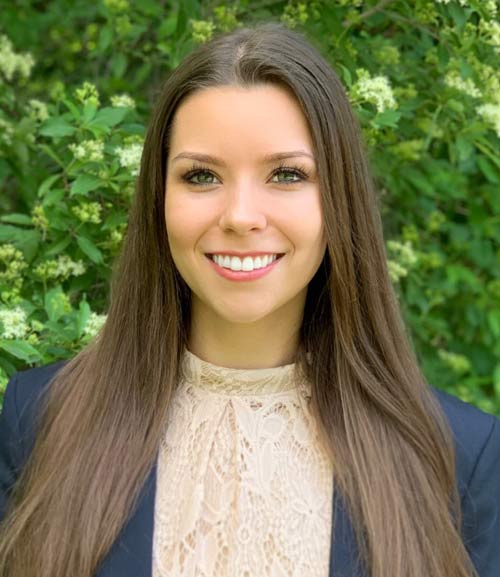Graduate Student Jo Alanis Receives J-DEI Research Grant
January 12, 2024 - Shelly DeJong
 Jo Alanis, a 5th year graduate student specializing in Organizational Psychology, received the MSU Psychology Department’s Graduate Student J-DEI Research Grant. This grant seeks to encourage and support the department’s graduate students’ exemplary research on topics that examine or advance justice, diversity, equity, and/or inclusion. Jo recently shared about her work researching immigrants in the workplace, why this type of work is important to her, and what she wishes that she had learned earlier.
Jo Alanis, a 5th year graduate student specializing in Organizational Psychology, received the MSU Psychology Department’s Graduate Student J-DEI Research Grant. This grant seeks to encourage and support the department’s graduate students’ exemplary research on topics that examine or advance justice, diversity, equity, and/or inclusion. Jo recently shared about her work researching immigrants in the workplace, why this type of work is important to her, and what she wishes that she had learned earlier.
Congratulations on winning this grant! Can you tell me what it means to you to receive it?
Thank you so much! It means so much to me to receive this grant because it will allow me to pursue research on a very important yet understudied population in the workplace: immigrants. This grant serves as an affirmation that other people care about this work and that they believe that it will advance not only the J-DEI research literature but also improve the lives of those that are affected.
Can you share a bit about your proposed project?
My proposed project investigates the overqualification experiences of immigrant workers through the lens of relative deprivation theory. Overqualification is a prominent issue facing immigrant workers in the US, due to various reasons such as challenges in recognizing foreign credentials and prejudice & discrimination and can have numerous adverse effects on one’s work experiences and well-being. In using relative deprivation theory, which is the idea that people feel deprived of something when comparing themselves with similar others, my research will first investigate certain factors that are believed to inform immigrants’ experiences of relative deprivation as well as their broader experiences of overqualification.
How did you get interested in this line of work?
I was inspired to pursue research involving the immigrant community first by my grandfather, who came to the US from Mexico as part of the Bracero agricultural program. In addition to my family history, I grew up in Houston, TX, one of the most racially and ethnically diverse cities in the US, which allowed me to appreciate the culture and customs of all different communities. Lastly, witnessing the political discourse regarding immigration in recent years further fueled my interest in this line of work because I believe that research has the ability to speak to important topics that pose social, economic, and political implications.
Why is it important for you to do J-DEI work?
Completing this work is important to me because I believe that the world benefits from people who are invested in J-DEI efforts. Serving others has always been a part of my life and I feel that pursuing J-DEI work in the context of the workplace allows me to do that in a way that affects people on a daily basis.
What do you like about psychology?
One of the things I love most about psychology is the impact that you’re able to have on people through your work. Whether you’re working in research, social services or consulting in an organization, your work is likely going to positively affect someone. I think that specializing in psychology affords us the opportunity to better understand people overall and contribute to the betterment of society.
Would you like to give a shoutout to anyone in the department?
I would love to give a shoutout to the fantastic faculty and students in the Org Psych program, who I can always rely on for support and words of wisdom. I’d especially like to say thank you to my advisor, Dr. Ann Marie Ryan, for helping me navigate the complexities of grad school over the last 4.5 years!
What’s something you wish you had learned earlier as a graduate student?
Something I am still working on is knowing that I will not (and cannot) save the world and that change happens incrementally and through translational work. As a grad student, it has always been important to me to pursue work that I believe will have an impact outside of academia, but it can be difficult to appropriately scope the work with that in mind. My unsolicited advice is to break big ideas down into multiple smaller projects and search for outlets to share your work with a broad audience.

